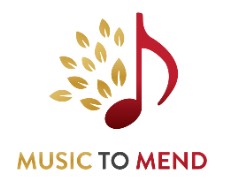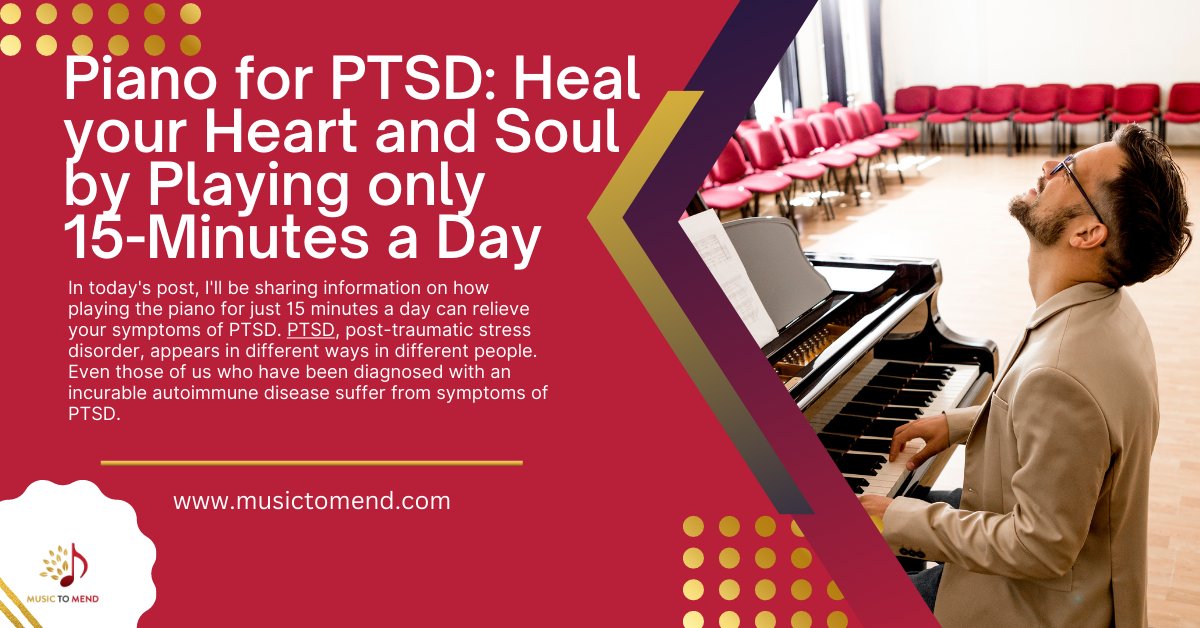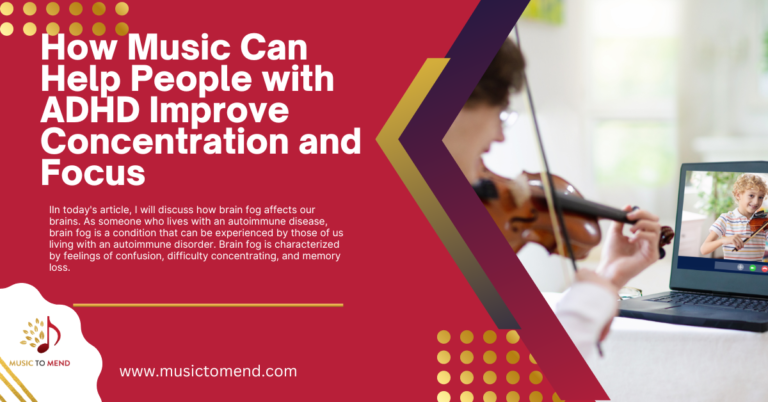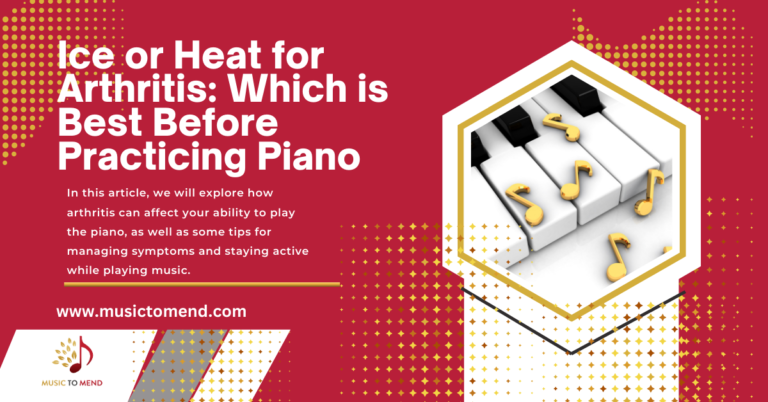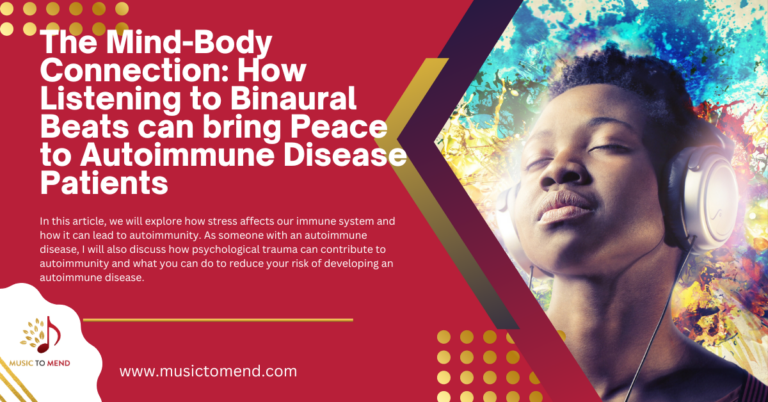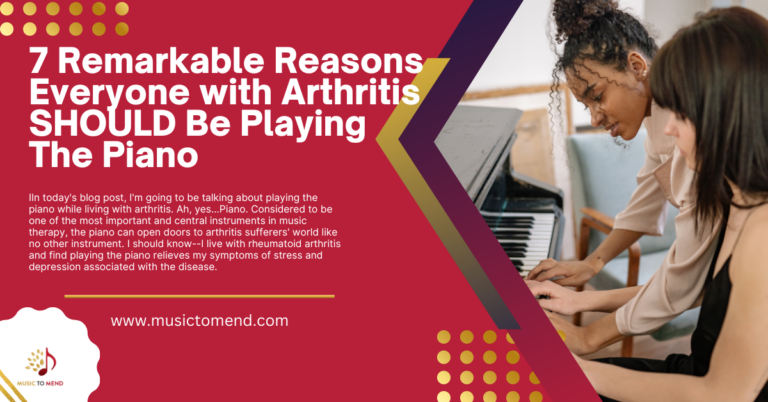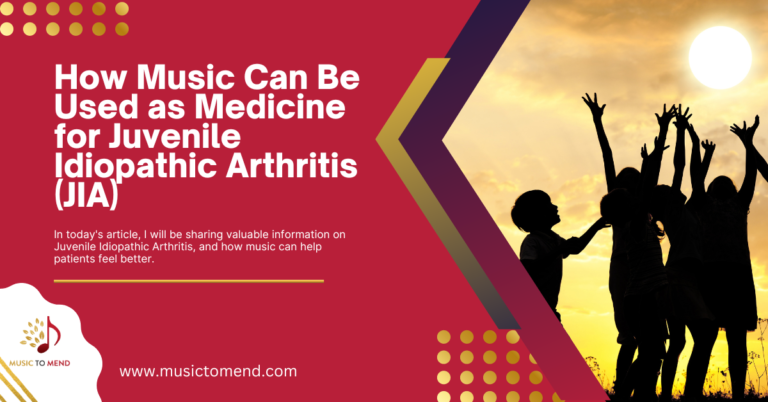Piano for PTSD: Heal your Heart and Soul by Playing only 15-Minutes a Day
In today’s post, I’ll be sharing information on how playing the piano for just 15 minutes a day can relieve your symptoms of PTSD. PTSD, post-traumatic stress disorder, appears in different ways in different people. Even those of us who have been diagnosed with an incurable autoimmune disease suffer from symptoms of PTSD. Hearing the news you have an incurable autoimmune disease can be difficult to hear; I had sad, and frustration and I was angry that this disease came into my life! Like so many others who are affected by trauma, fear, past hurts, etc., I had to find an outlet for my feelings and emotions: I turned to my piano!
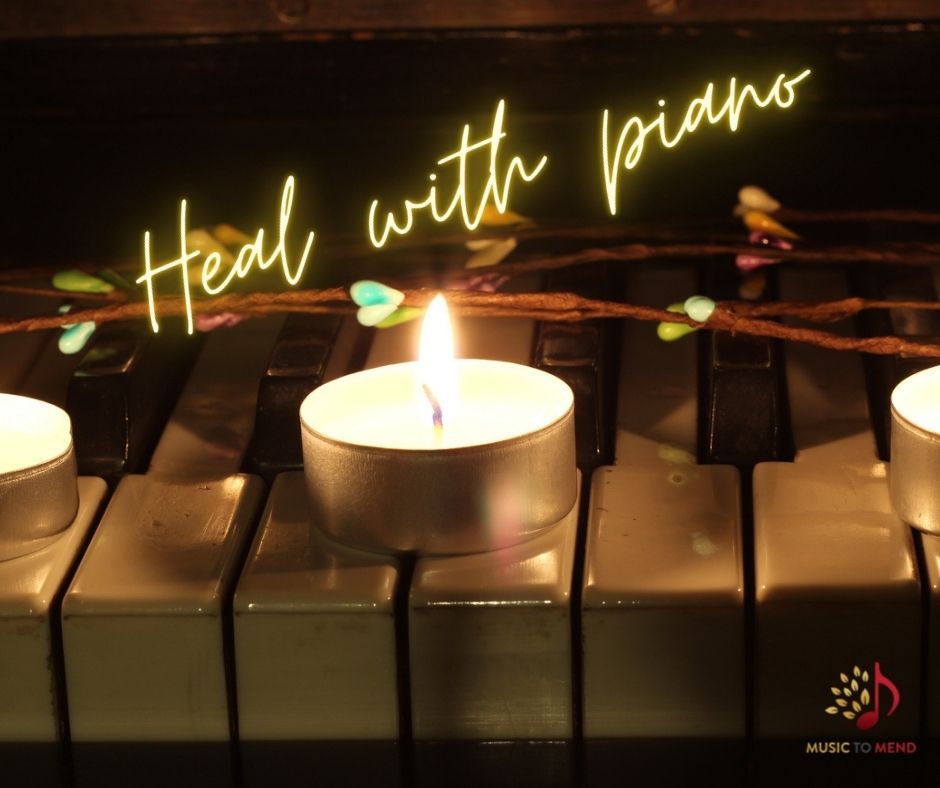
Trauma treatment in all of its forms seeks to reconnect the mind, the body, and the spirit, thereby reconnecting people to life. Music as therapy can serve as one of those vessels, vibrating through the senses, making sense of the brain, and creating a sensual, spiritual experience. That’s why the piano can be such a healing vessel for those in pain, especially PTSD.
Piano as therapy may be a useful therapeutic tool to reduce symptoms and improve functioning among individuals with trauma exposure and PTSD.
In a world that is dominated by news of conflict, violence, and natural disasters affecting millions of people around the globe, there is a need for effective strategies for coping with trauma. Such trauma’s effects on individuals and communities are deep and long-lasting. Cultural techniques play an important role in helping communities to recover from trauma. Sports and games, for example, have been used in numerous settings with individuals suffering from post-traumatic stress disorder. Other arts-based therapies, such as reading or creative writing, are also proving to be effective means for dealing with the aftermath of traumatic events.
Playing the piano for just 15 minutes a day can also play a role in helping individuals and communities to cope with trauma, whether it be through the intervention of piano teachers, such as myself, community music-making programs, or individual music listening. However, despite the abundance of positive examples of the value of the arts in trauma recovery, music, and the arts receive little recognition by leaders in global health issues.
Posttraumatic stress disorder (PTSD) signs and symptoms can severely impact day-to-day life. It is important to get PTSD help (support groups, family, etc.) and posttraumatic stress disorder treatments as soon as possible. Posttraumatic stress disorder is a mental illness that develops after experiencing or being exposed to, an event that physically harms or threatens to harm someone physically. This harm, or threat of harm, may be directed toward the sufferer or another individual.
Posttraumatic stress disorder (PTSD) symptoms include the persistent reliving of the trauma, avoidance of any place that is a trauma reminder, trouble sleeping, and many others. PTSD symptoms can be terrifying and life-altering as the person tries to avoid any situation that may bring about severe anxiety. This avoidance can make a person’s world much smaller and allow them to do fewer and fewer things as they fear the re-emergence of their posttraumatic stress disorder symptoms. They may even turn to drugs to numb the psychological pain caused by their symptoms (Living with PTSD Can Be a Nightmare).
Prior to 1980, symptoms of PTSD were seen as a personal weakness or character flaw and not as an illness. It is now known, however, that posttraumatic stress disorder symptoms are caused by physical changes in the brain and not due to a person’s character.
Here are a few facts about PTSD:
- The person must have:
- Experienced or witnessed an event involving serious injury, death or a threat to someone’s physical well-being
- A response involving helplessness, intense fear or horror
- The person must re-experience the event. This may be through dreams, flashbacks, hallucinations or intense distress when confronted with cues that symbolize the traumatic event.
- Three of the following post-traumatic stress symptoms must be present:
- Avoidance of thoughts, feelings or conversations that are associated with the event
- Avoidance of people, places or activities that may trigger recollections of the event
- Trouble remembering important aspects of the event
- Significantly diminished interest or participation in important activities
- Feeling of detachment from others
- Narrowed range of affect (reduced visible emotions)
- Sense of having a foreshortened future
- Two of the following post-traumatic stress symptoms must be present:
- Difficulty sleeping or falling asleep
- Decreased concentration
- Hypervigilance (an over-awareness to, searching for, possible dangers)
- Outbursts of anger or irritable mood
- Exaggerated startle response (overly responsive when startled)
- Posttraumatic stress symptoms must be exhibited for more than one month
- Posttraumatic stress symptoms must cause clinically significant distress or impairment of functioning
The practice of playing the piano requires real concentration and full engagement of the brain. Depending on the practice type, different brain parts may be used. Something about the vibrations caused by the strings and the impact it has on the wood – and therefore the impact on the rest of the body – actually has a calming effect. However, these same calming effects can be experienced by using a digital keyboard as well…no problem!
If you are suffering from PTSD and want to heal your heart and soul by playing the piano, I can teach you how to play your favorite songs in weeks instead of years. I use ear-training techniques and improvisation to help you learn how simple it is to play the piano. If you want to learn more about how you can relieve your symptoms of PTSD, I hope you consider learning to play the piano to mend your heart.
Here’s a beautiful song I’ve chosen just for you to help you relax…I hope you enjoy it!

